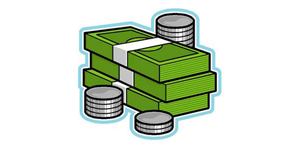
Writing a successful grant proposal for Title 1, Part A of the Elementary and Secondary Education Act is about as difficult as keeping a handle on all of its “also known as” names. Instead of remembering, Education for the Disadvantaged-Grants to Local Education Agencies or Improving the Academic Achievement of the Disadvantaged or Title 1 ESEA, most educators just keep it simple, calling it, Title 1. The purpose of Title 1 is to provide financial assistance to states and their various school districts so that they improve the academic achievement of economically disadvantaged and at-risk students. Program evaluation is tied to the performance of participating schools and their target students on state assessments like Common Core. Schools qualify for Title 1 eligibility on the basis of the percentage of students they have that receive Free or Reduced Lunch. If you’d like to know more about Title 1, please visit the following site:
www2.ed.gov
Unfortunately, there is nothing simple about drafting a solid Title 1 grant proposal, and only experienced district coordinators can do it successfully repeatedly. Knowing your target audience, having excellent writing skills and command of the English language, and being concise are just a few standard elements to be expected from a proposal. What are some persuasive elements that will place a grant proposal on the “awarded” track? For this I will assume that all other things like, meeting eligibility, a proposal that is in alignment with the priorities of state standards and Title 1, there having been a comprehensive “needs assessment” undertaken by all stakeholders, and other nuts and bolts are already in place. Title 1 coordinators/grant writers should consult with their State Office of Education as often as needed. After all, they ultimately approve each Local Education Agency’s proposal. Below are some general and specific tips to give your Title 1 proposal a solid chance of being accepted by your State Office of Ed.
1. Make a connection with reviewers via your language by using active verbs and minimizing the use of adverbs and modifiers. The latter use up valuable space, confuses readers and bogs down any narrative. “As our preliminary research determined…” is a great way to start a sentence. “In some studies, it was concluded that…” is not a good way to start a sentence. Try, “Several studies concluded that…” instead! When using adverbs, spice up your passive writing by selecting intensive ones such as, “actually,” “significantly,” and so on.
2. Teach the reviewer what you know. Grant proposals are about sharing with the reader what you know about a particular subject with a passion for the subject at hand.
3. Be as brief as possible. Grant proposals are not a time to use your creative voice. Stick to each question as closely as possible. Use guides or rubrics your district/state may have for answering, in an exemplary fashion, the portions of the Narrative Question.
4. Have strong content. Strong content gathering takes about as much preparation as does an impending WASC team visit. Data, both qualitative and quantitative, must be evidenced based. Your goals and objectives must be clearly articulated and in alignment with your planned activities, budget, methods of evaluation, etc. This is also where you want to mention how your targeted student population will benefit over and over. There is nothing more confirming of readiness than strong content. If you prove you are ready, the money will follow!
5. Have an impeccable budget report. You can demonstrate readiness with strong content, but you can screw it all up with a poor budget. Ensuring fiscal appropriateness and how you will monitor the use of funds is of utmost importance. The budget will also explain how sustainable your proposal is. The money coming is not from an infinite funding source. Prove you won’t need it forever!
There is no system that schools and districts can use to guarantee that their Title 1 grant proposal is accepted. However, doing the intelligent thing, like reading already approved grant proposals, networking with other Title 1 district coordinators and grant writers, and consulting with grant writing experts, should give the needy school/district a leg up on their journey to receiving an award. Also, keep in mind that submitting a grant proposal is not a one-time, all or nothing event. If it doesn’t get approved the first time, keep trying! As motivation, remember who all of this is for. Good luck!



